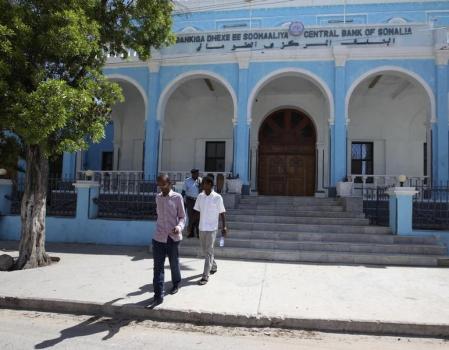Parliament okays foreigner to head Central Bank as it amends law

A crucial amendment in the Central Bank Act sailed through parliament Monday giving the executive a go-ahead to appoint a foreign national to head the country’s central bank amid reports the government was tapping the services of a British national.
The Lower House endorsed the amendment of article 12 of the Central Bank of Somalia Act 2012 which had hitherto restricted the appointment of central bank governors and board members to Somali nationals. 163 MPs supported the government supported a motion to amend the law while 13 others filed a contrary opinion.
Prior to the amendment, article 12 made citizenship a key qualification for appointment of the board of directors to the central bank in addition to a university degree. For the governor and deputy governor in particular who are both members of the board, the law requires that they possess a monetary, financial, banking, accounting, legal or economic matters with 12 years’ experience in the same fields.
Unconfirmed reports earlier in the week noted British national Nigel Roberts who has worked in Somalia including as a member of the Financial Governance Committee representing the World Bank could be the government’s choice for the much-needed turn-out of the Federal Reserve Bank.
The decision to settle for a foreigner seems to have been sealed last year when the government put up an advertisement in the Economist seeking a new governor ahead of the lapse of the current holder’s term in November. Ise Bashir’s term as governor of the central bank legally ended in November.
According to the advertisement, there was no mention of nationality as a qualification opening way for any qualified individual across the world to try his or her hand in the job. The appointment of foreigners to run central banks is not uncommon with a number of countries widening their scope for talent beyond their borders.
The Canadian national Mark Carney has been at the helm of the UK’s national reserve bank since 2013.